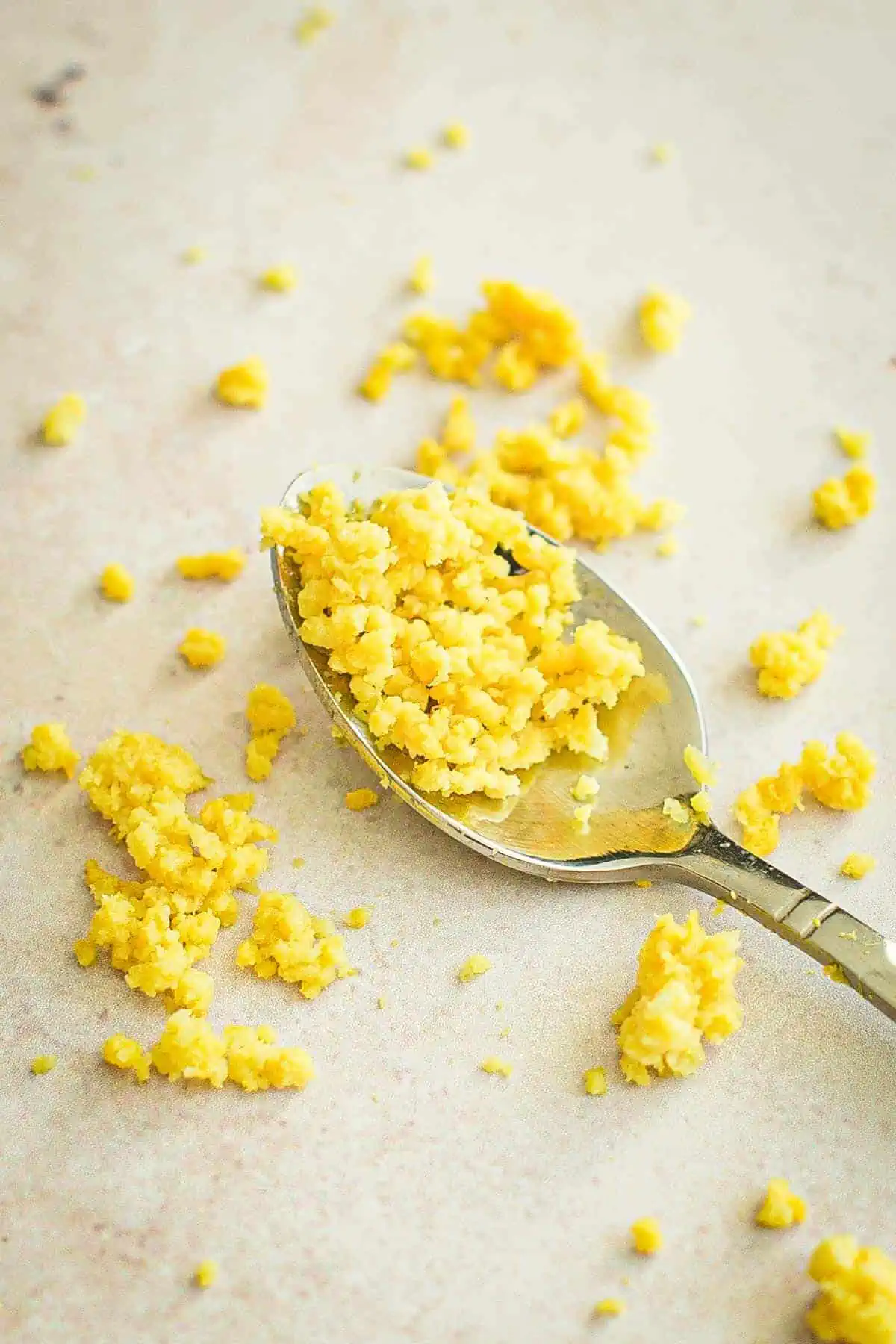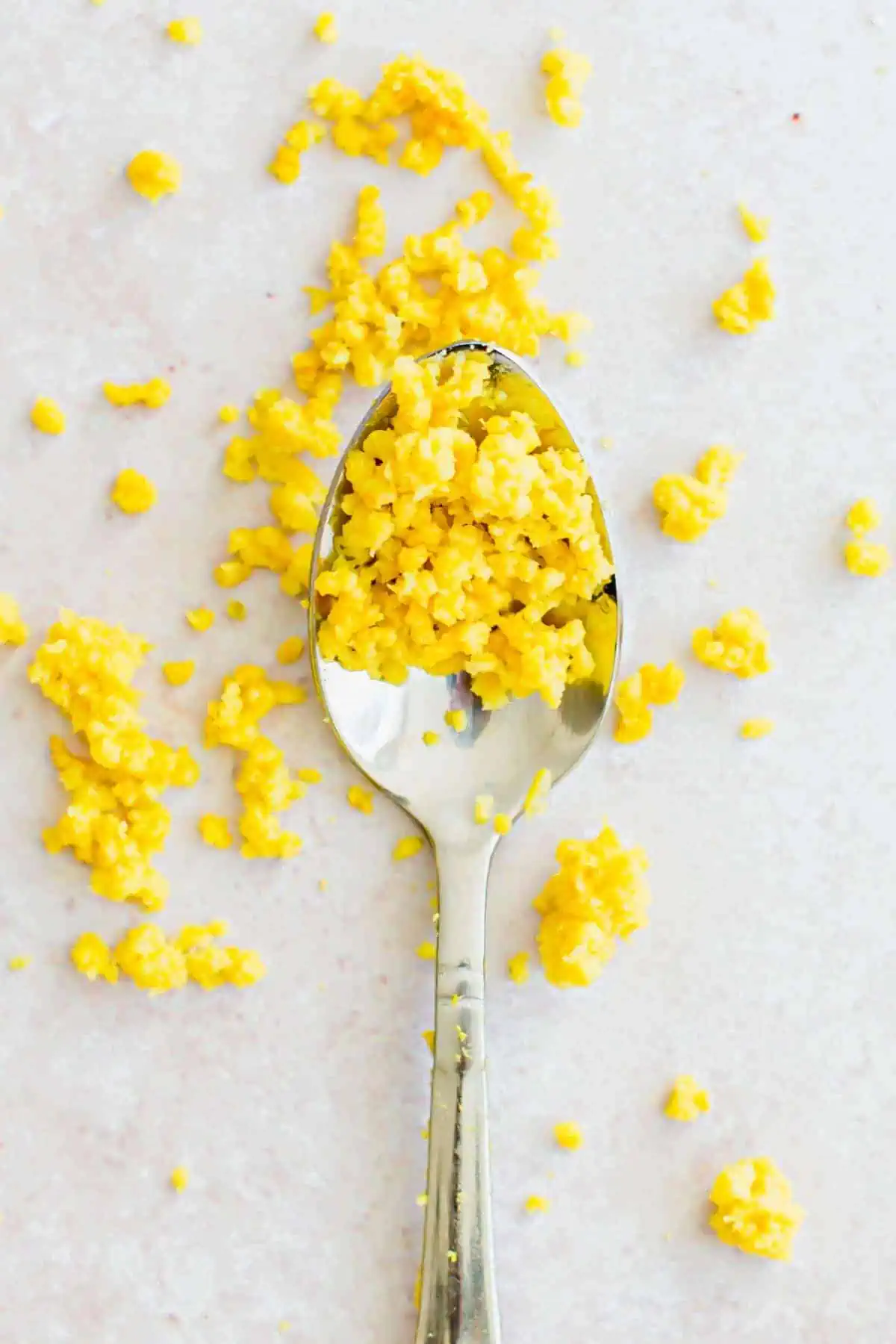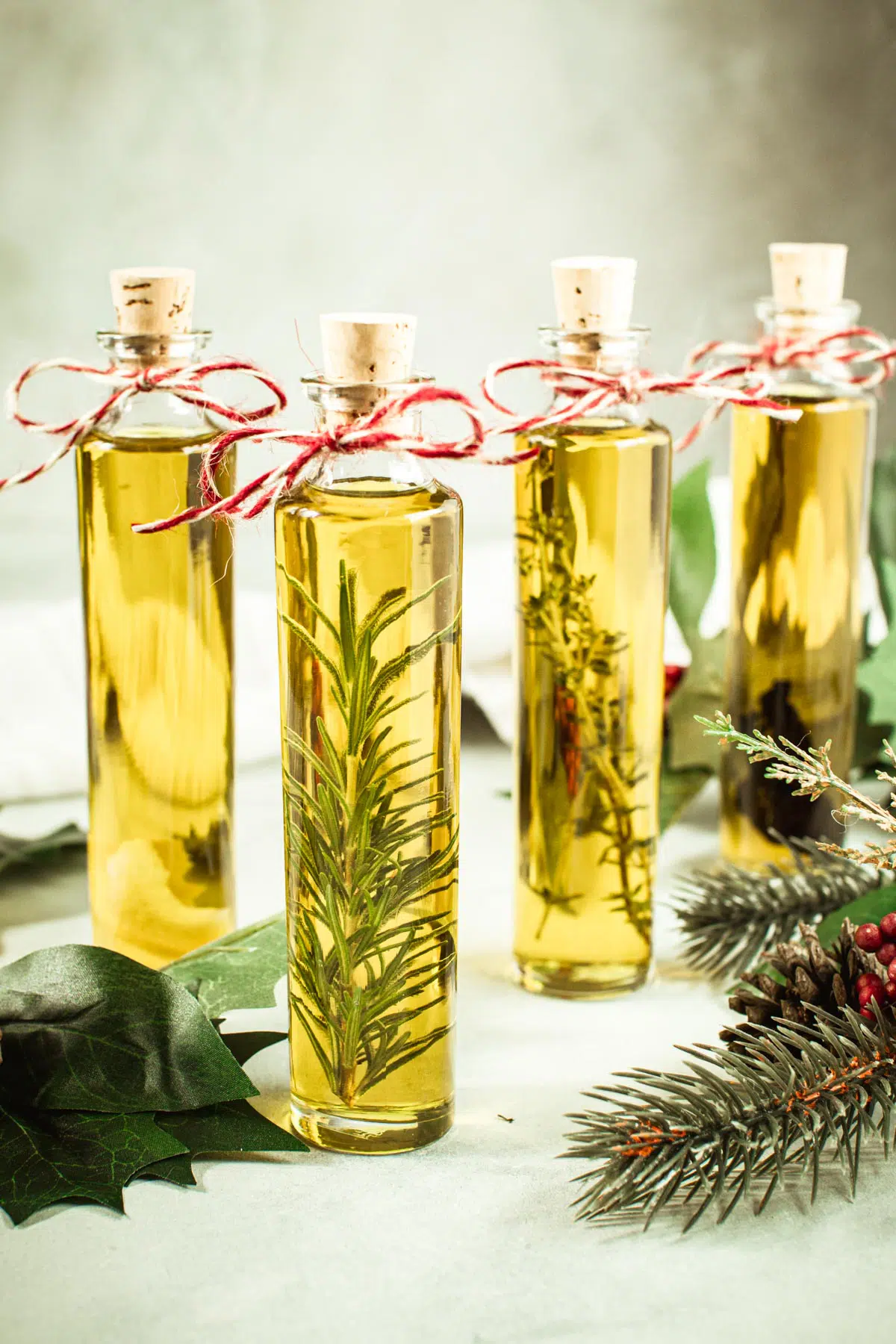Want to know how much juice is in one lemon? There are some factors that affect the actual amount, which is all listed here. Included are the basic specifications as well as how to maximize the juice yield as well as other tips and tricks.
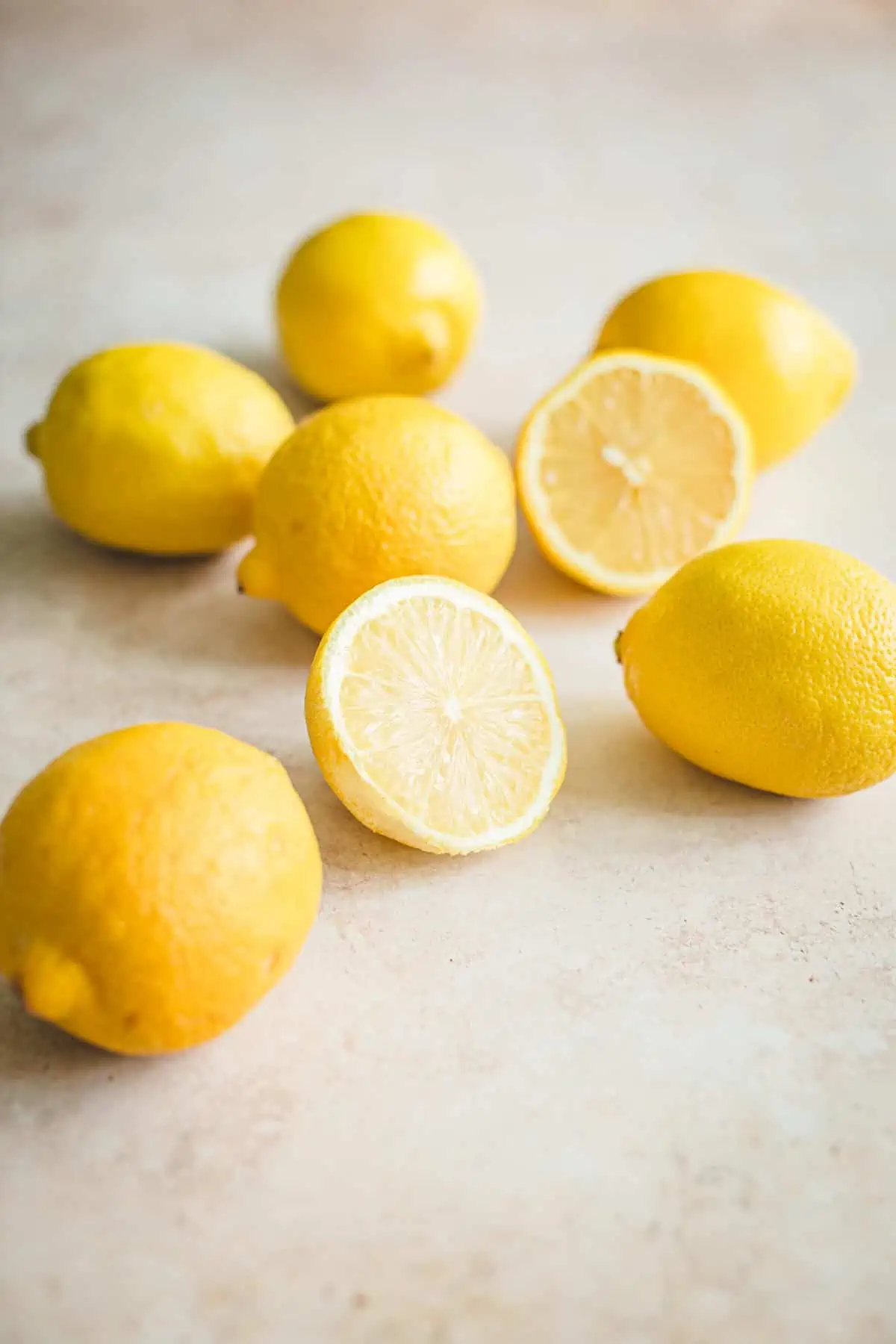
How Much Juice Can You Expect from a Lemon
On average, a typical lemon will yield about 2-3 tablespoons (30-45 milliliters) of juice. However, this can vary based on the factors mentioned below.
To get the most juice out of a lemon, it’s best to choose one that is ripe and plump and to roll it firmly on a flat surface before cutting it open. This helps to break up the membranes inside the lemon and release more juice.
Maximizing Your Lemon Juice Yield: Tips and Tricks
Lemons are a versatile citrus fruit that is used in a variety of culinary applications, from adding flavor to dishes to providing a tart, refreshing juice for drinks like Lavender Lemonade. However, one common question that arises when using lemons is how much juice is in one lemon.
Below are some insights on how to get the most juice out of your lemons. Don’t want to use the juice? Learn the difference between Lemon Zest vs Lemon Juice.
FAQS
The number of lemons needed to make 1 cup of lemon juice can vary based on the size and juiciness of the lemons. On average, it takes about 5-6 medium-sized lemons to produce 1 cup of lemon juice.
The amount of concentrated lemon juice that equals one lemon can vary depending on the strength and concentration of the product. However, as a general rule of thumb, the juice from one medium-sized lemon can be substituted with 2-3 tablespoons of concentrated lemon juice.
The amount of juice in a large lemon can vary based on the size and juiciness of the fruit. However, on average, a large lemon can yield approximately 4 tablespoons of juice. This is equivalent to 1/4 cup of lemon juice.
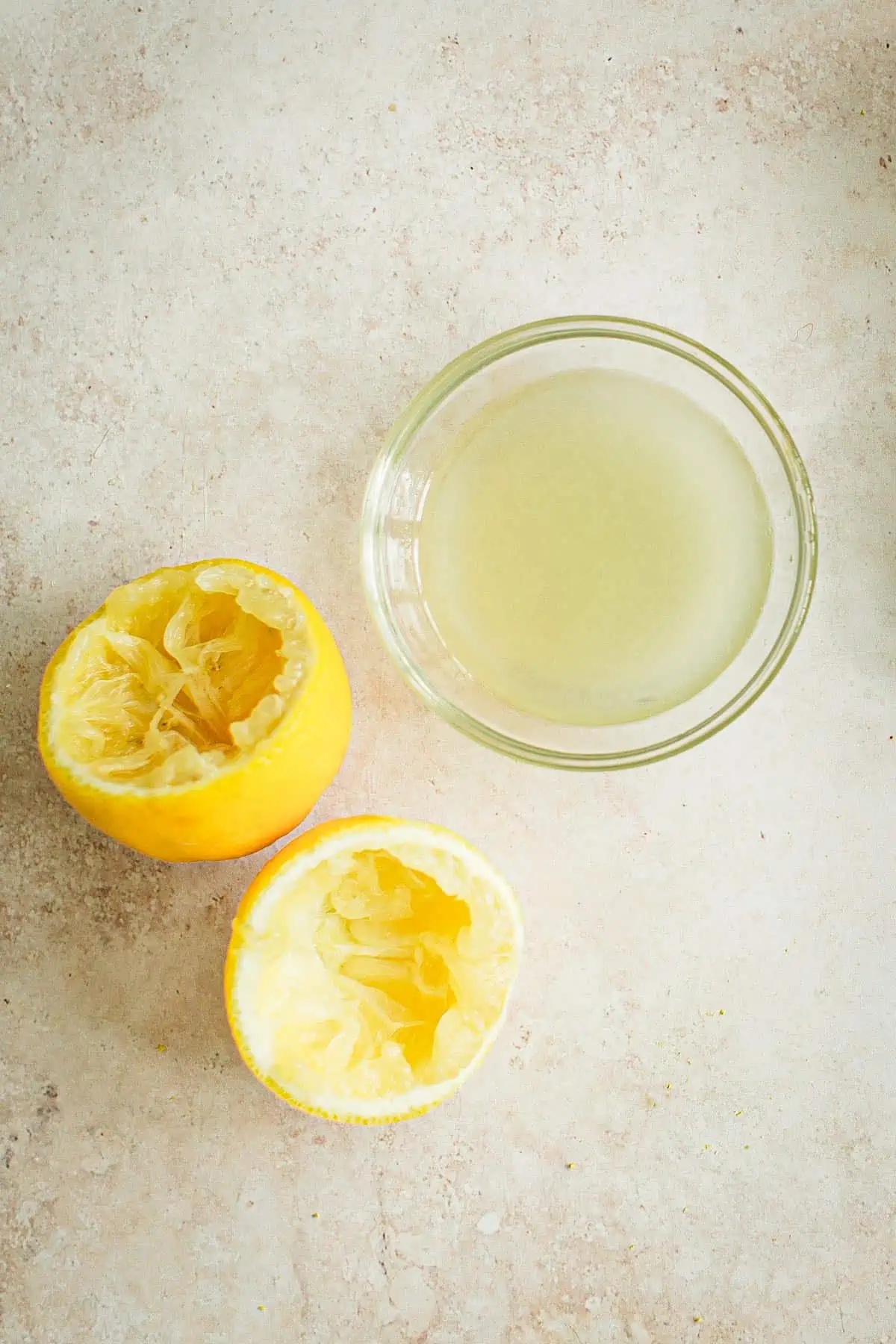
What Factors Affect the Amount of Juice in a Lemon?
The amount of juice in a lemon can vary based on a number of factors, including the size and ripeness of the fruit, as well as the variety of lemon.
Generally, larger lemons will yield more juice than smaller ones, and ripe lemons will be juicier than unripe ones. Some varieties of lemons, such as Meyer lemons, are known to be especially juicy.
Uses for Lemon Juice
Lemon juice is a versatile ingredient that can add a bright and refreshing flavor to a variety of dishes, both sweet and savory. Here are some common uses for lemon juice in cooking and baking:
- Flavoring for sauces and dressings: Lemon juice can add a tangy, acidic flavor to a variety of sauces and dressings, such as vinaigrettes and aioli.
- Tenderizing meat: The acidity in lemon juice can help break down tough fibers in meat, making it more tender. It’s a great addition to marinades too such as this Yogurt Chicken Marinade.
- Brightening up soups and stews: A squeeze of lemon juice can add a pop of brightness and freshness to hearty soups and stews.
- Baking: Lemon juice can be used in a variety of baked goods, such as cakes, cookies, and muffins, to add a tangy flavor and enhance the rise of the batter.
- Preserving fruits and vegetables: Lemon juice can be used as a natural preservative to prevent fruits and vegetables from turning brown, such as in guacamole or sliced apples. It also works in sauces such as Strawberry Sauce.
- Cocktails: Lemon juice is a key ingredient in many classic cocktails, such as the Whiskey Sour, or newer ones like a Raspberry Sour or a Raspberry Collins.
How to Store Lemon Juice
Freshly squeezed lemon juice should be stored in an airtight container, such as a glass jar or plastic container with a tight-fitting lid. It is best to store the juice in the refrigerator to keep it fresh and prevent bacterial growth. Lemon juice can be stored in the refrigerator for up to a week. You can also use it to make recipes such as Homemade Sour Mix.
To keep the juice fresh for longer, it can also be frozen in an airtight container or ice cube tray for up to six months. It’s important to note that lemon juice can lose some of its flavor and nutritional value over time, so it’s best to use it as soon as possible after squeezing.
Tips for Getting the Most Juice Out of a Lemon
If you’re looking to get the most juice out of your lemons, there are a few tips and tricks that can help:
- Roll the lemon: As mentioned above, rolling the lemon on a flat surface before cutting it can help release more juice.
- Microwave the lemon: You can also microwave the lemon for 15-20 seconds before cutting it, which can help to soften it and make it easier to juice.
- Use a citrus reamer: A citrus reamer is a tool specifically designed for juicing citrus fruits. It has a conical shape with ridges that help to extract the juice from the fruit.
- Use a juicer: If you’re juicing a large number of lemons, a juicer can be a convenient tool to have on hand. Electric juicers can quickly and efficiently extract juice from multiple lemons at once.
Learn More About Lemons
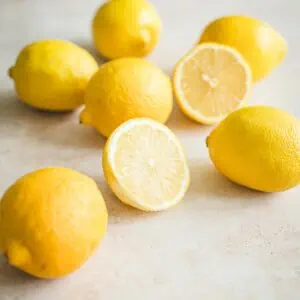
How to Get the Most Juice Out of a Lemon
Ingredients
- 1 Lemon
Instructions
Roll the Lemon
- As mentioned above, rolling the lemon on a flat surface before cutting it can help release more juice.
Microwave the Lemon
- You can also microwave the lemon for 15-20 seconds before cutting it, which can help to soften it and make it easier to juice.
Use a Citrus Reamer
- A citrus reamer is a tool specifically designed for juicing citrus fruits. It has a conical shape with ridges that help to extract the juice from the fruit.
Use a Juicer
- If you're juicing a large number of lemons, a juicer can be a convenient tool to have on hand. Electric juicers can quickly and efficiently extract juice from multiple lemons at once.

